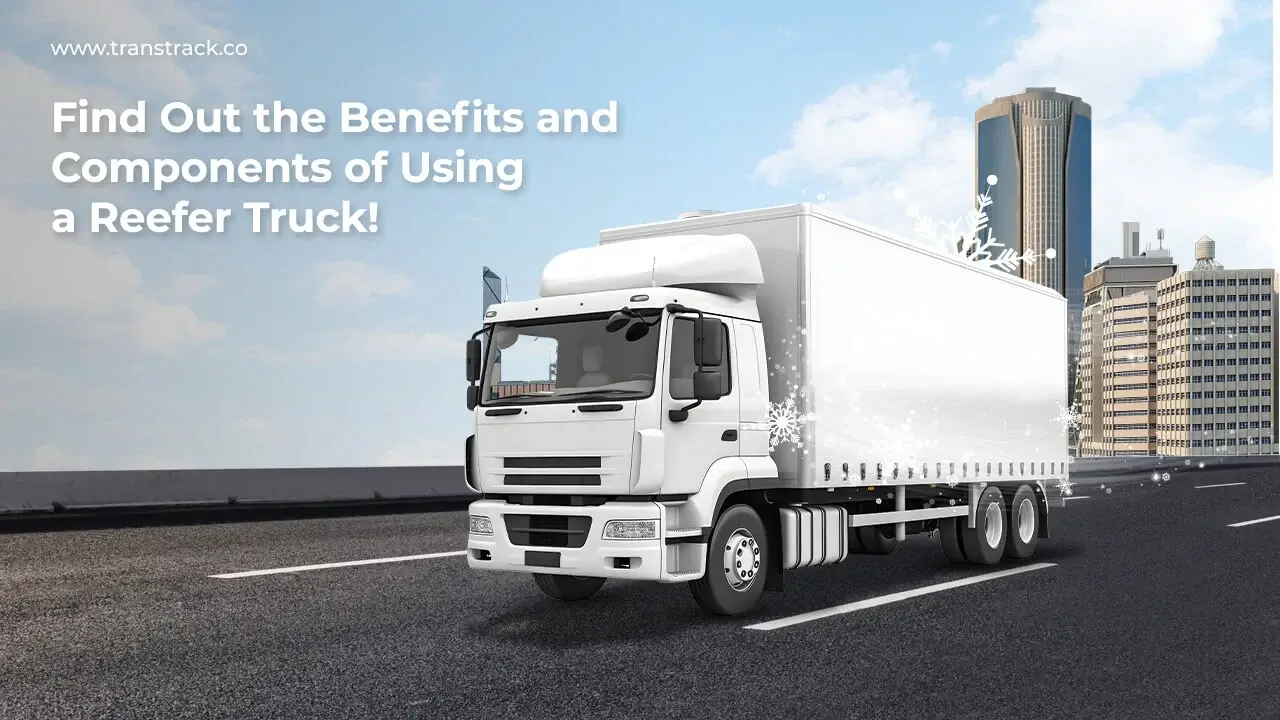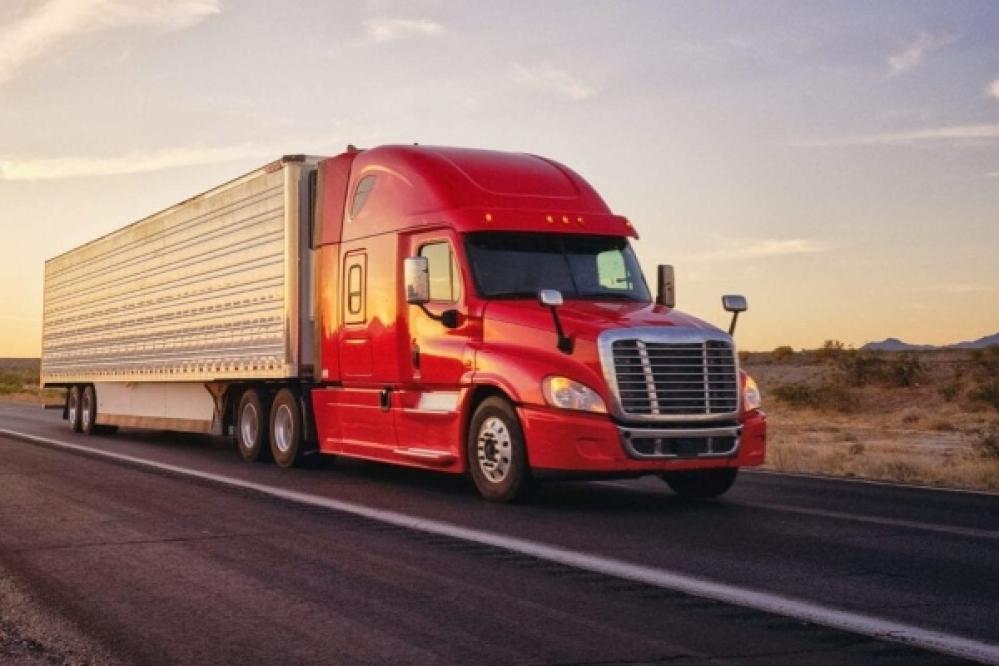Thermo King Truck Refrigeration Units: Ideal Options for Temperature Control
Thermo King Truck Refrigeration Units: Ideal Options for Temperature Control
Blog Article
Top Developments in Transport Refrigeration: Enhancing Efficiency and Safety And Security
The landscape of transportation refrigeration is undertaking considerable makeover, driven by developments intended at improving both efficiency and security. As these advancements proceed to develop, it is crucial to explore their ramifications on functional techniques and regulatory compliance, triggering a closer evaluation of exactly how they improve the future of transportation refrigeration.
Smart Temperature Level Monitoring Solutions
In the world of transportation refrigeration, clever temperature level monitoring systems have arised as a critical technology for ensuring the integrity of temperature-sensitive goods. These advanced systems leverage Net of Things (IoT) technology to offer real-time information on temperature changes, allowing drivers to preserve ideal conditions throughout the supply chain. By continually tracking the temperature of cooled containers and cars, companies can swiftly identify inconsistencies that may endanger item high quality.

Moreover, smart tracking systems usually incorporate automated notifies and alerts, allowing stakeholders to respond without delay to any prospective problems. This aggressive method not just decreases the risk of wasting yet additionally enhances compliance with governing standards regulating food safety and security and pharmaceutical transportation.
The integration of data analytics within these systems additionally helps with predictive upkeep, aiding operators to anticipate possible tools failures before they occur. This capability lowers downtime and maximizes functional efficiency, eventually causing set you back savings.
Eco-Friendly Refrigerants
Smart temperature surveillance systems play a crucial duty in preserving item quality, however the performance of transport refrigeration additionally rests on the option of cooling agents utilized. As ecological concerns increase, the change in the direction of eco-friendly refrigerants has actually become imperative. Conventional refrigerants, such as hydrofluorocarbons (HFCs), are infamous for their high Global Warming Prospective (GWP), adding considerably to environment adjustment. On the other hand, emerging alternatives like hydrocarbon-based refrigerants and hydrofluoroolefins (HFOs) existing reduced GWP options, providing both efficiency and sustainability.
These green refrigerants not just minimize environmental impact but also align with global policies targeted at terminating hazardous materials. Their adoption can lead to enhanced energy effectiveness, inevitably decreasing operating prices for transport refrigeration systems. Moreover, making use of all-natural cooling agents, such as ammonia and co2, has gained traction because of their superb thermodynamic homes and reduced ecological footprint.
Purchasing environmentally friendly refrigerants is not simply a governing conformity action; it stands for a tactical choice that improves brand name credibility and fosters consumer loyalty. thermo king truck refrigeration units. By prioritizing sustainable techniques, business can contribute to a greener future while making certain the stability of transported items
Advanced Insulation Products
Using advanced insulation products is important for optimizing transportation refrigeration systems, as they substantially boost power effectiveness and keep consistent temperature level control. Standard insulation methods frequently drop short in stopping thermal transfer, resulting in boosted energy usage and rising and fall temperatures within cooled areas.
Emerging materials such as vacuum cleaner shielded panels (VIPs) and aerogels use superior thermal resistance, permitting thinner accounts without endangering performance. VIPs, for example, use a vacuum layer to reduce conductive and convective heat transfer, making them optimal for space-constrained applications. Aerogels, recognized for their lightweight and porous framework, offer remarkable insulation while dramatically reducing overall system weight.
Additionally, including stage change materials (PCMs) into insulation systems can further maintain temperatures during transit. These materials absorb and release thermal energy, effectively buffering versus exterior temperature level variants.
The assimilation of these innovative insulation products not just lowers the functional prices related to power intake but also expands the rack life of temperature-sensitive items. As the transport refrigeration industry remains to evolve, the fostering of innovative insulation modern technologies will be pivotal in improving both performance and safety and security in chilled transportation.
Automated Path Optimization
The efficiency of transport refrigeration systems is greatly improved through automated course optimization, which leverages advanced formulas and real-time information to establish one of the most reliable paths for delivery. By analyzing numerous variables such as web traffic patterns, climate condition, and distribution windows, these systems can substantially decrease travel time and gas usage.
Automated route optimization decreases human error and subjective decision-making, which can lead to ineffectiveness. This innovation enables fleet supervisors to assign sources a lot more efficiently, making sure that cooled goods preserve their required temperature level throughout the journey. By enhancing courses, firms can additionally improve consumer fulfillment through prompt deliveries.
Moreover, automated systems can adapt to unpredicted situations, such as roadway closures or sudden web traffic spikes, permitting dynamic rerouting. This adaptability not only secures the honesty of temperature-sensitive products yet additionally adds to total operational performance.
Executing automated path optimization can result in substantial price savings while decreasing the carbon impact connected with transport. As companies significantly prioritize sustainability, this advancement stands apart as an essential element in modern-day transport refrigeration, lining up functional objectives with environmental obligation. Eventually, automated course optimization stands for a significant improvement in the pursuit for performance and safety in transport refrigeration.

Real-Time Information Analytics
Automated route optimization dramatically take advantage of the integration of real-time data analytics, which provides critical understandings into the efficiency of transport refrigeration systems. By using real-time data, transport drivers can keep an eye on temperature changes and equipment efficiency, guaranteeing that disposable items are preserved within called for parameters throughout transportation. This proactive technique not only boosts the high quality of the transported products yet also minimizes the risk of spoilage and loss.

Along with improving effectiveness, real-time analytics improves safety and security by making certain conformity with regulatory criteria for temperature control. This not refrigerated transportation thermo king just shields public wellness however also strengthens a company's reputation - thermo king transport refrigeration. As the transportation refrigeration market evolves, the assimilation of real-time data analytics becomes a cornerstone for driving innovation, sustainability, and functional quality
Final Thought
In conclusion, the advancements in transport refrigeration considerably improve both effectiveness and safety within the market. Collectively, these developments represent an important advancement in transportation refrigeration, making certain conformity with governing criteria and advertising a greener future.
The landscape of transportation refrigeration is undertaking substantial transformation, driven by innovations intended at boosting both performance and security.Smart temperature tracking systems play an important role in maintaining item top quality, yet the efficiency of transport refrigeration likewise hinges on the selection of cooling agents utilized. Their adoption can lead to enhanced energy performance, inevitably lowering operating expenses for transport refrigeration systems. Eventually, automated path optimization stands for a considerable improvement in the quest for performance and safety and security in transport refrigeration.
In final thought, the advancements in transport refrigeration significantly boost both effectiveness and safety within the sector.
Report this page